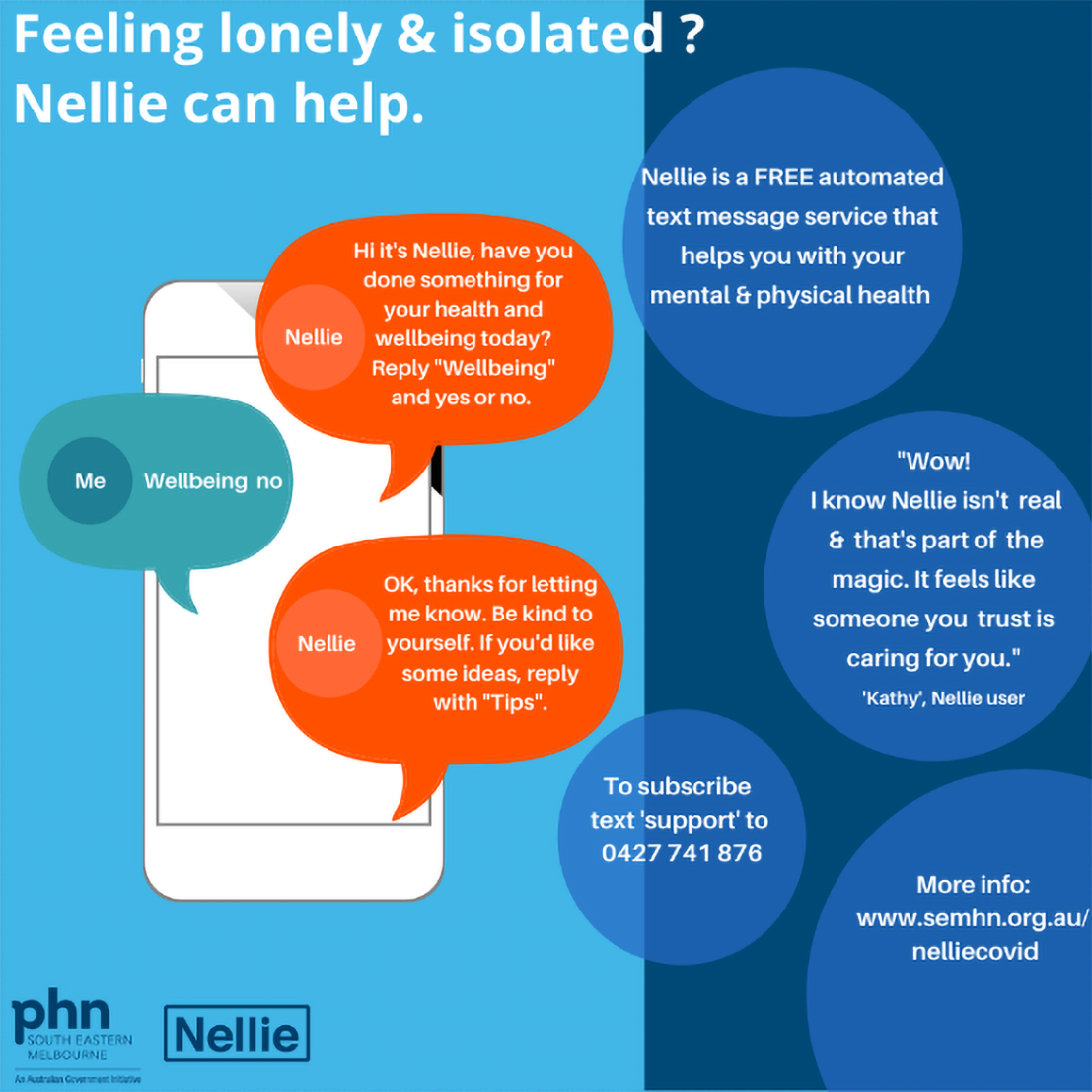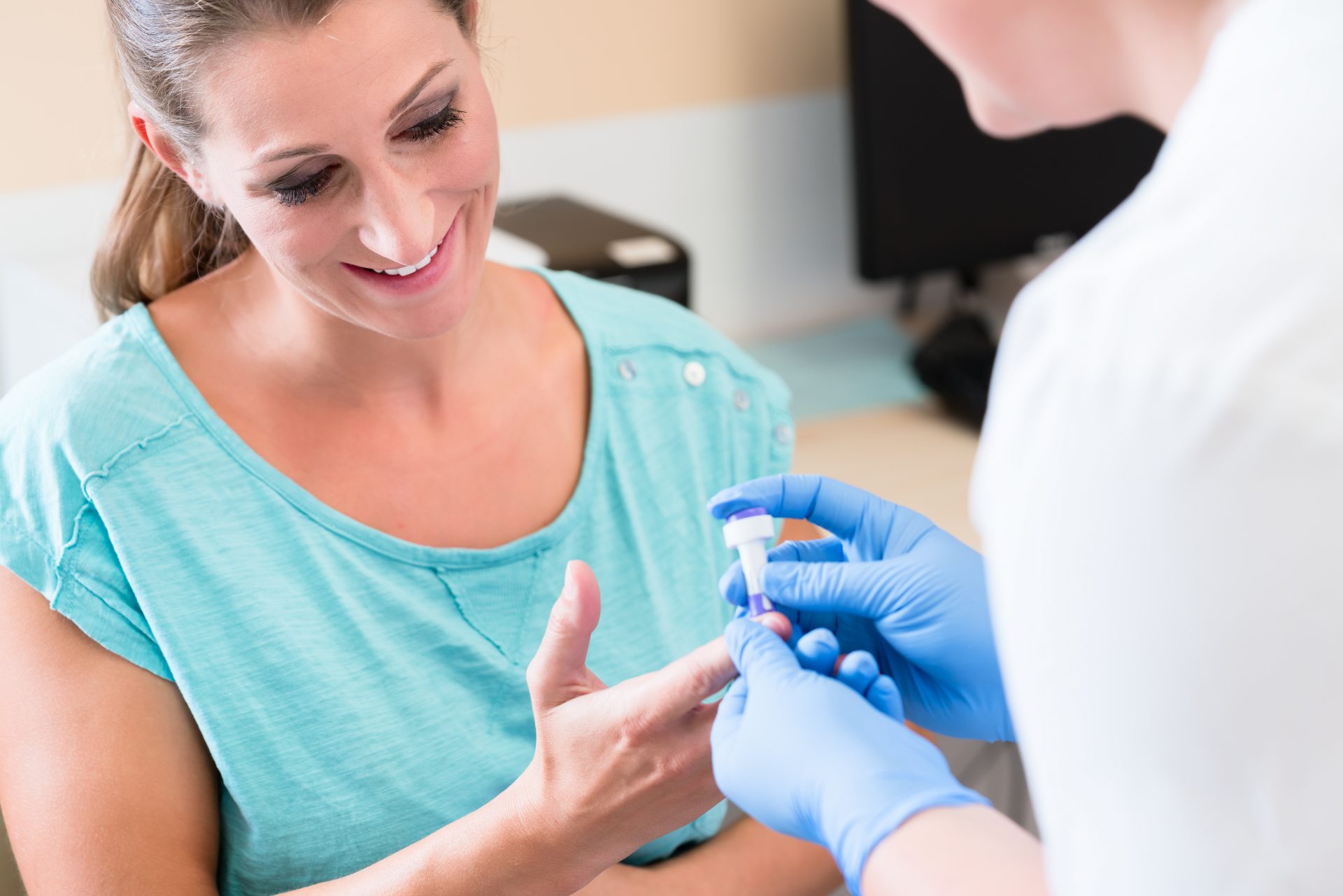Digital innovation and quality improvement
SEMPHN is committed to providing digital health solutions to help general practices and the broader community better understand, monitor, manage and improve health outcomes across the region.
Nellie continues to be invaluable in supporting the health and wellbeing of patients across the region
Increased Support for the Community Through Nellie
In 2019-20, SEMPHN established a new set of protocols for Nellie to support the mental health and wellbeing of the south east community during COVID-19.

The automated text messaging service was originally designed as a tailored response to support an individual’s health needs following a consultation with their GP. Since the pandemic, SEMPHN’s Digital Health team expanded its text messaging service to support people who may be experiencing anxiety and/or loneliness during the restrictions in Victoria. In addition, the team drafted a third protocol: the use of a clinical monitoring function and a rapid model of care for patients who received a positive COVID-19 test result.
Key highlights
- More than 800 patients have subscribed to Nellie
- Two new mental health protocols were developed
- Patient and clinician feedback on Nellie continues to be strongly positive.
“Wow, I know Nellie isn’t a real person (and that’s part of the magic). But it feels like it’s a real person who cares about you” – Nellie subscriber.
Using digital tools such as POLAR and data@semphn has vastly helped to improve patient management and quality of care across many clinics in south east Melbourne.
Using digital to better manage diabetic patients
In 2019-20, Better Life Clinic in Pakenham successfully developed and adopted new strategies to better care and manage their diabetic patients.
The clinic first opened two years ago but has already built a patient database enabling them to work more collaboratively with their GPs to ensure appropriate follow up appointments and referrals were better managed. The clinic identified an increased need to focus on their diabetic patients and to ensure individuals were coming in for their HbA1c test – a routine blood test done every three months to measure their ‘average’ blood glucose level.
To accompany this, the clinic developed a chart showing local and regional data of HbA1c tests for the waiting room to demonstrate the clinics commitment to improving the care of their diabetic patients and to prompt other patients to ask questions.
Within four months, Better Life Clinic improved their rate by almost 20 per cent demonstrating a significant improvement to the level of care they provide to their diabetes patients.
Using data to improve patient care

General Practices act as local data custodians, ensuring that the accuracy and completeness of patient data obtained is used to improve the quality of patient care and outcomes.
The Population Level Analysis & Reporting tool (POLAR) is widely used across general practices in the region and has been instrumental in supporting practices participating in the PIP Quality Improvement (QI) program.
More general practices across the region are choosing to use POLAR as their clinical data extraction tool with 312 practices now successfully using the software to audit, manage and coordinate patient care.
In August 2019, the Commonwealth Government introduced the PIP QI, designed to reward practices for participating in continuous quality improvement activities in partnership with their local Primary Health Network.
Three hundred and thirty-five general practices in the region registered to participate in the PIP QI program, requiring them to share a minimum set of de-identified aggregated data with SEMPHN, such as the number of patients who are diabetic or the percentage of people who smoke. POLAR effectively interprets and extracts practice data to better support their patient’s conditions.
Key highlights
- In 2020 the number of general practices using POLAR increased from 128 to 312
- We developed a new dashboard and contract reporting system to support the 28 SEMPHN-funded care coordination practices
- We conducted a rapid assessment of the impact of the COVID-19 pandemic on general practice with a focus on service use and changes to modes of access (face-to-face vs telehealth).
- We identified vulnerable patients who may be at risk from lower engagement with their practice during isolation
We created new reports to track:
- PIP QI metrics
- Hospitalisation Risk
- Macquarie University published a significant Research project report on our work.







 Digital Innovation and Quality Improvement
Digital Innovation and Quality Improvement